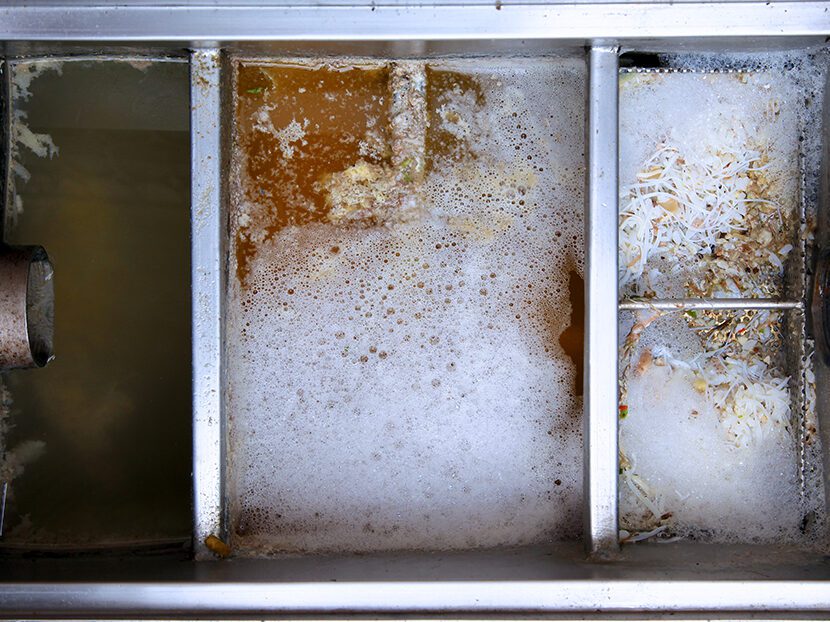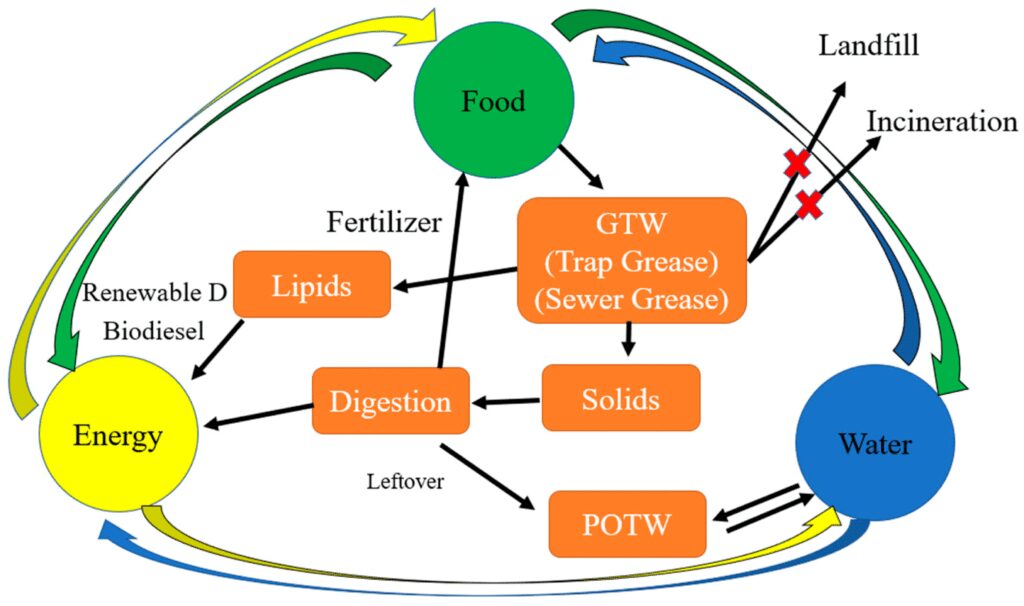Is Grease Trap Waste Hazardous? Trusted by Industry Pros
Grease trap waste might look like just oily leftovers, but it can actually be hazardous if not handled right. Understanding the risks helps you manage it safely and avoid fines or environmental harm.
Let’s break down why grease trap waste needs serious attention and how to deal with it properly.
Is grease trap waste hazardous?
Yes, grease trap waste contains harmful bacteria and gases, posing health and environmental risks if mishandled.
Key Takeaways
- Grease trap waste contains fats, oils, grease, food solids, and bacteria.
- It can release harmful gases and clog plumbing if ignored.
- Legally, it’s usually not classified as hazardous but must be disposed of properly.
- Improper disposal pollutes soil and water, risking fines and environmental harm.
- Always use licensed haulers, wear protective gear, and schedule regular cleanouts.
What Is Grease Trap Waste?

Grease trap waste is the gunk your kitchen rinses off but never fully gets rid of. It’s a mix of fats, oils, grease (aka FOG), and food solids that build up in the trap under your sink or floor.
This isn’t just cooking grease. It’s also bits of meat, sauces, and dairy—basically, everything your grandma said not to pour down the drain.
Left alone, it thickens into a nasty sludge. And yeah, it smells like regret.
Over time, it clogs pipes, wrecks plumbing, and becomes a legit health hazard. That’s why regular cleanouts aren’t optional—they’re your plumbing’s cheat code.
Want to avoid fines and funky odors? Handle your grease trap waste before it handles you.
Why Grease Trap Waste Can Be Considered Hazardous
Grease trap waste isn’t just gunk and leftovers—it can turn into a serious problem fast. When fats, oils, and grease (aka FOG) break down, they release harmful gases like hydrogen sulfide. Not exactly the kind of scent you want wafting through your kitchen.
That thick, sludgy mess also breeds bacteria. Some of it’s the gross, disease-spreading kind you don’t want near food or water lines.
Plus, if grease gets dumped in the wrong spot, it can contaminate soil and water. That’s a fast track to fines and environmental damage.
The fix? Don’t just toss it. Always dispose of grease trap waste through certified haulers or local programs. It keeps your kitchen clean, your pipes happy, and your conscience clear.
Bottom line: grease trap waste may look harmless, but it’s lowkey hazardous. Treat it like the bio-waste it is and handle it right.
Is Grease Trap Waste Legally Classified as Hazardous Waste?
Short answer? Usually not. Grease trap waste can be gross, but legally, it’s not classified as hazardous under federal EPA rules.
That said, you can’t just dump it wherever. Local and state laws treat it seriously because of how it can pollute water systems if handled wrong.
Some areas treat certain parts—like oils mixed with heavy metals or cleaning chemicals—as hazardous waste. So, check your local rules.
Bottom line: grease trap waste may not be “hazardous” by definition, but mishandling it? Still a legal and environmental mess.
Best move? Always use a licensed hauler and follow your city’s disposal requirements. Keeps your business clean and your fines at zero.
Environmental Risks of Improper Grease Trap Disposal
Tossing grease trap waste where it doesn’t belong? That’s a shortcut to a major environmental mess.
When grease, oils, and food solids hit soil or waterways, they don’t just disappear. They coat surfaces, choke out oxygen, and straight-up wreck ecosystems. Fish die, water smells funky, and soil stops doing its job.
If that gunk hits storm drains, it can block flow and back up into streets or homes. Not cute.
Worse, it’s loaded with bacteria. That sludge becomes a breeding ground for nastiness you don’t want near people, pets, or your favorite weekend hangout.
The fix? Dispose of it legally and regularly. Partner with pros who know what they’re doing and follow local laws. It’s cleaner for you, and way better for the planet.
Health & Safety Risks for Workers and Businesses
Grease trap waste isn’t just gross—it’s a legit health hazard. It can release toxic gases like hydrogen sulfide that mess with your lungs and stink up the place.
Workers handling it without proper gear risk skin burns, eye irritation, and nasty infections. One slip-up, and it’s a bad day for your team.
For businesses, a sloppy cleanup job can trigger fines or force a shutdown. No one wants the health department showing up mid-lunch rush.
Bottom line? Take this stuff seriously. Use pros, wear the right gear, and keep safety checks tight. Don’t let a grease trap become your liability.
How to Safely Handle and Dispose of Grease Trap Waste
First things first: don’t dump it down the drain. Grease trap waste is loaded with fats, oils, and sludge that can wreck your plumbing and pollute waterways.
Start by scheduling regular cleanouts. Waiting too long? That stuff turns into a toxic soup real quick. Wear gloves, seal containers tight, and store them in a cool spot until pickup.
Disposal isn’t a DIY moment. Call a licensed hauler who knows the rules. Many cities have strict guidelines, and skipping steps can cost you big.
If you’re running a kitchen, this is part of the job—like keeping your knives sharp or your playlist on point. Stay ahead of the mess and your space (and the environment) will thank you.
Grease Trap Waste Recycling & Waste-to-Energy Options

Yeah, that nasty grease? It doesn’t have to rot in a landfill. A lot of it gets recycled into biodiesel or used in waste-to-energy plants. That means your old fryer sludge could help power buses or heat buildings.
If your hauler offers these options, take the win. It’s cleaner, smarter, and keeps your local grid flexing a little greener.
Frequently Asked Questions
1. Is grease trap waste actually hazardous?
Yep. It’s packed with fats, oils, food sludge, and nasty bacteria. Left unchecked, it can be a health risk and environmental mess.
2. Can I toss it in the trash or down the drain?
Definitely not. It needs to be handled like the toxic troublemaker it is—with proper disposal by licensed pros.
3. What happens if I ignore it?
Think clogged pipes, foul smells, and fines. It’s a gross—and expensive—combo. Don’t sleep on regular cleanouts.
Conclusion
Grease trap waste isn’t just gross—it can be straight-up hazardous if you don’t handle it right. We’re talking bacteria, toxins, and the kind of mess that’ll ruin your Monday.
Disposing of it the right way keeps your space safe and the environment cleaner. Don’t risk it.
Use certified haulers, follow local laws, and clean your traps regularly. Play it smart, not sloppy.
